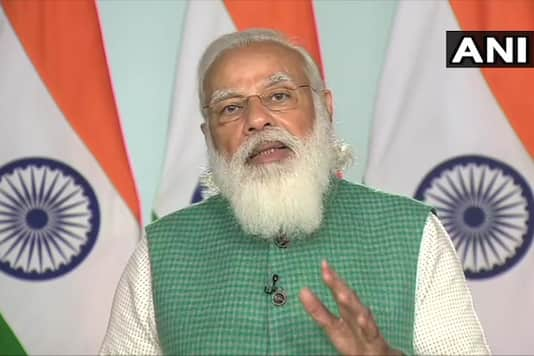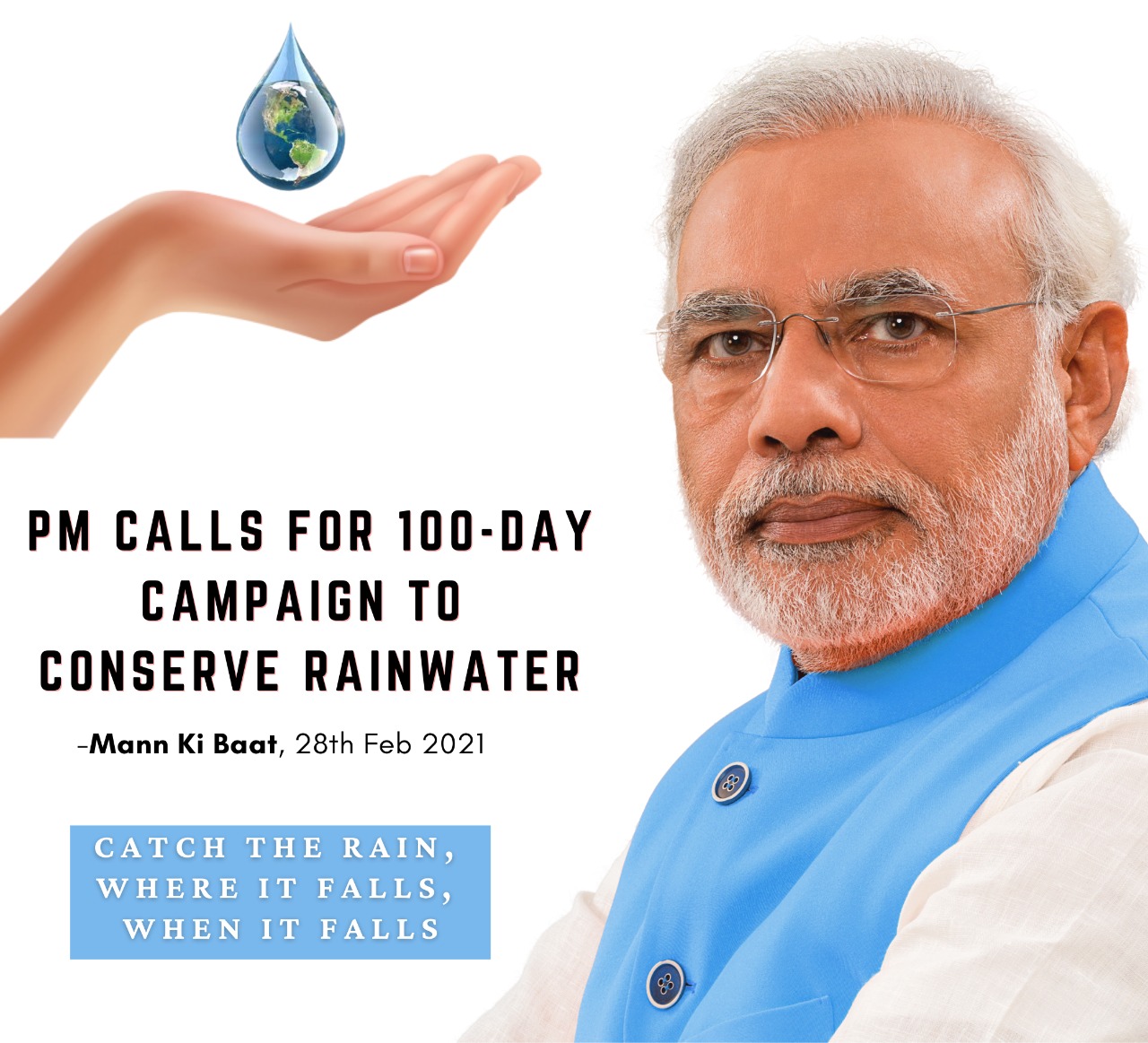Prime Minister Narendra Modi on Sunday appealed to the people to start a 100-day ‘Catch the Rain’ campaign to conserve water ahead of the summer. Addressing the country in his monthly radio programme ‘Mann Ki Baat’, the Prime Minister said “this is the best time to think about water conservation in the summer months ahead”.
“Rain begins in many parts of India in May-June. Can we run a 100-day campaign to clear the water reservoirs to conserve water? Jal Shakti Ministry will soon begin a similar campaign ‘Catch the Rain’. The key mantra of the campaign is catch the rain, where it falls, when it falls,” the Prime Minister said.
National Water Mission :
National Water Mission’s (NWM) campaign “Catch The Rain” with the tagline “Catch the rain, where it falls, when it falls” is to nudge the states and stake-holders to create appropriate Rain Water Harvesting Structures (RWHS) suitable to the climatic conditions and sub-soil strata before monsoon.
Under this campaign, drives to make check dams, water harvesting pits, rooftop RWHS etc; removal of encroachments and de-silting of tanks to increase their storage capacity; removal of obstructions in the channels which bring water to them from the catchment areas etc; repairs to step-wells and using defunct bore-wells and unused wells to put water back to aquifers etc are to be taken up with the active participation of people.
To facilitate these activities, states have been requested to open “Rain Centers” in each district– in Collectorates/Municipalities or GP offices. During this period, these Rain Centres will have a dedicated mobile phone number and will be manned by an engineer or a person well trained in RWHS. This centre act as a technical guidance centre to all in the district as to how to catch the rain, as it falls, where it falls.
Efforts should be made so that all buildings in the district should have rooftop RWHS and that maximum quantity of rain water falling in any compound should be impounded within the compound itself. The basic aim should be that No or only limited will water to flow out of the compound. This will help in improving soil moisture and rasing ground water table. In urban areas it will reduce water gushing onto roads, damaging them and will prevent urban flooding.
We are NeeRain are committed to this cause of ” Catch the Rain ” that’s the reason we have pioneered a “No water loss” rainwater filter for a common man which is extremely economical, easy, effective and effecient to catch, filter, use or recharge rainwater.

